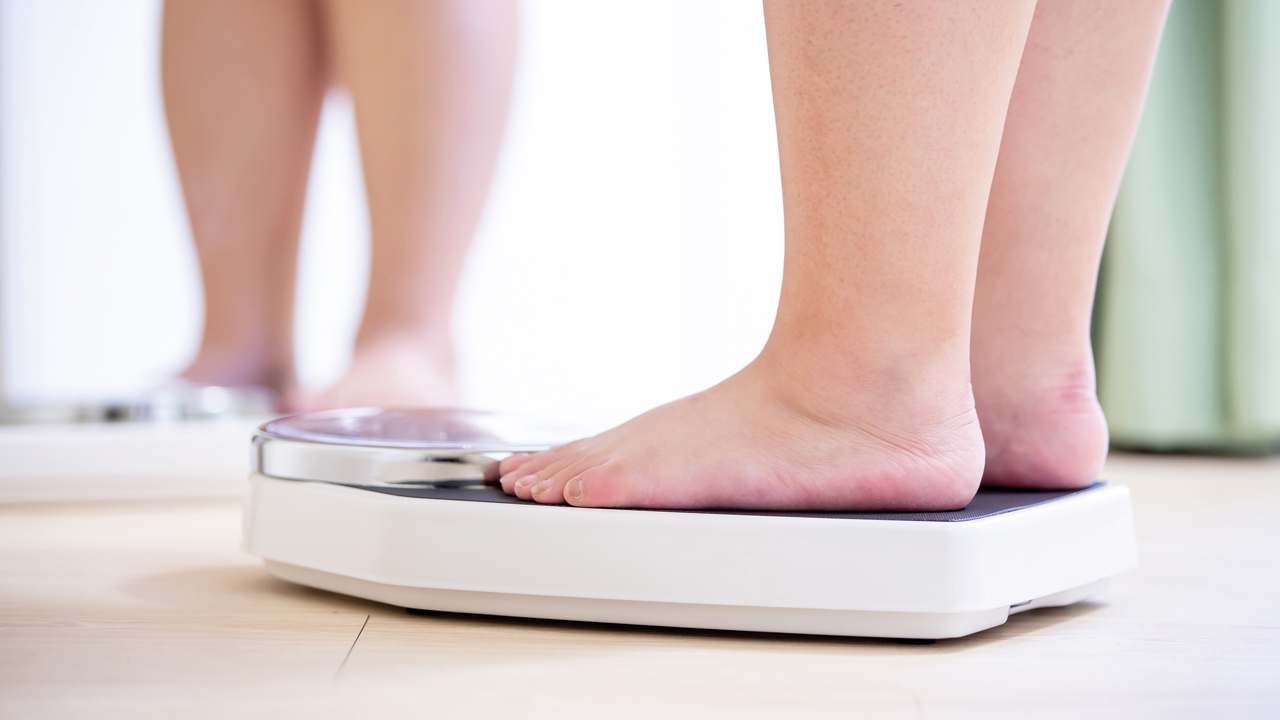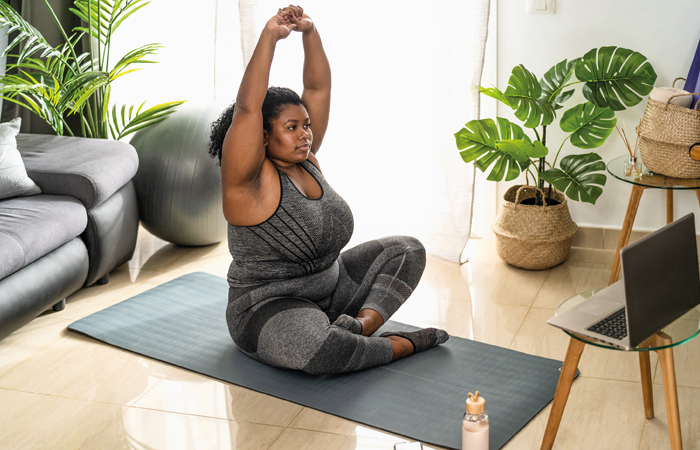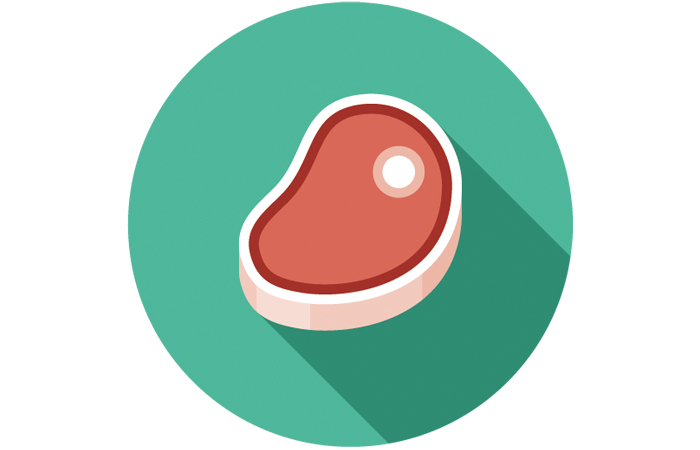In Conditions
Follow this topic
Bookmark
Record learning outcomes
This summer saw the Lionesses make history as the first English team to win a major football tournament since 1966. Players including Chloe Kelly, Ellen White and Jill Scott shone a spotlight on women’s sport across the country. Yet, for the female general public, regular exercise is a thing of the past.
Indeed, almost half of UK women (47 per cent) have done no vigorous exercise in the past 12 months and one in seven say they’ve stopped exercising completely, according to new research published by Nuffield Health as part of their Healthier Nation Index.
Explanations for this vary. Primarily, women are 23 per cent more likely than men to struggle with poor work-life balance, according to data from the mental wellbeing platform 87%. Lockdown also caused many to give up sports and hobbies, leading a third of people to believe that their physical health has deteriorated since.
Even when individuals are exercising, Nuffield research found that the average Brit completes just 40 minutes a week, well under the recommend 75 minutes. For women, 67 per cent blamed this on a lack of motivation, 55 per cent said a lack of time was a barrier, 40 per cent cited embarrassment and 35 per cent said they did not know where to start.
Arguably, the most significant health risk facing a country with depleting exercise levels is the population becoming overweight and even obese. In fact, these conditions are on the rise. NHS statistics on obesity, physical activity and diet in England in 2020 saw a four per cent increase on the previous year for hospital admissions directly attributable to obesity and an increase of 23 per cent of hospital admissions where obesity was considered a factor. But what does it mean to be obese?
Understanding the issue
Obesity is primarily caused by consuming more calories than burnt off during exercise with excess energy being stored as body fat. It is a common problem that affects around one in every four adults in the UK and one in every five children aged 10-11, according to the NHS. Research conducted by the NHS has also found that women are the demographic most likely to be obese, with 29 per cent of English women falling into this category.
Typically, individuals rely on body mass index (BMI) as a measure of a healthy weight for a specific height. For most adults, a BMI of:
- 18.5-24.9 means they’re a healthy weight
- 25-29.9 means they’re overweight
- 30-39.9 means they’re obese
- 40 or above means they’re severely obese.
For some adults, however, a high BMI can indicate an individual is very muscular without much fat. For this reason, waist size is a more common indicator that people are overweight or moderately obese. An indication of obesity for men is a waist size of over 94cm and over 80cm for women.
It is estimated that being overweight and obese contributes to at least one in every 13 deaths in Europe.
“The most significant health risk facing a country with depleting exercise levels is the population becoming overweight”
Obesity can cause a number of life-threatening conditions including:
- Type 2 diabetes
- Coronary heart disease
- Stroke.
It can also cause symptoms such as:
- Fatigue
- Isolation and low self esteem
- High cholesterol and blood pressure
- Asthma.
Obesity and pregnancy
Obesity can also lead to complications for pregnant women including gestational diabetes or pre-eclampsia, which occurs when a woman experiences a dangerous rise in blood pressure during pregnancy.
Pharmacy staff should not advise obese women who are already pregnant to try to lose weight during their pregnancy. It will not reduce the chance of complications and may not be safe. They should be encouraged to eat healthily and do activities such as walking or swimming. If a customer was not active before pregnancy, they should be advised to consult a midwife or doctor before starting a new exercise plan.
Being overweight increases the chances of complications for the mother and child. The higher the BMI, the higher the chance of complications including:
- Miscarriage or stillbirth
- High blood pressure or blood clots
- Spina bifida – a neural tube defect
- Heavier bleeding than normal after the birth.
Patients will also be more likely to need an instrumental delivery or emergency c-section.
The benefits of exercise
There is no quick fix for obesity and being overweight, pharmacy staff should provide encouragement and advice such as monitoring, setting goals and involving loved ones for moral support. The best treatment is to eat a healthy, less-calorific diet and to keep up regular exercise. Pharmacy staff can recommend that patients take up activities such as jogging or swimming for at least 2.5 to five hours a week.
Losing weight is not the only benefit that will come from committing to this routine. “Regular exercise has been associated with general levels of reduced tension, elevated mood, better sleep and improved self-esteem,” says Dr Folusha Oluwajana, personal trainer and GP. “Regular exercise can help to lower adrenaline and cortisol, which are released from our adrenal glands. These have a negative effect on the body as well as the mind, with physical effects such as increasing the risk of having high blood pressure or diabetes.”
In response to their research, Nuffield Health has launched the ‘Find Time For Your Mind’ campaign which encourages people to spend an extra five minutes a day exercising. This additional time would boost the 40 minutes average in the survey to the NHS guideline of 75 minutes a week.
“The findings from this year’s Healthier Nation Index are a stark warning that as an industry and society we need to boost our activity levels in order to counteract the physical health crisis we are facing after two years of the pandemic,” says Gosia Bowling, emotional wellbeing lead at Nuffield Health. “Five minutes a day will put people on a pathway back to good health, overcoming the initial barrier of getting started and helping develop better habits.”
Top tips
Dr Ben Kelly, head of clinical research at Nuffield Health has five top tips to pass on to customers to help keep their body moving throughout the day.
- Use the 90-minute rule – every 90 minutes, get up and stretch your legs. This could mean heading to the kitchen to make a coffee or outside for some fresh air
- Walk a little – it is recommended that you take 10,000 steps per day. This may seem daunting, so a good idea is to split it up into a few smaller strolls throughout the day
- Take the stairs as opposed to the lift or escalator
- Get off the bus or train early – get off one stop early and walk the rest of the journey. This might also go a long way to helping to hit 10,000 steps
- Take part in social sports – customers could find somebody to walk with, go to gym classes with or find a group to play tennis with. Keeping a regular date in the diary might make this a habit.
Pharmacy teams could also try suggesting customers take part in five-minutes-a-day Pilates challenges or full body workouts on YouTube. It’s important to emphasise that any movement is good movement, so all they need to do is start.
“If you are stressed, busy and have 101 things going on, it would probably be irresponsible to block out three hours every day just to exercise,” says Dr Oluwajana. “But, along with managing stress, it’s about managing time. Factoring in just 15-30 minutes a few times a week to exercise is more than enough.”
Key components for a well-balanced diet
According to the NHS Eatwell Guide, the foods we eat and drink should be divided into five main groups: fruit and vegetables; unsaturated fats; meat, eggs and pulses; starchy foods; and milk and dairy. The guide recommends that individuals choose a variety of different foods from each of these groups to help them get the wide range of nutrients their body needs to stay healthy. Here we explore the benefits of each key component.








